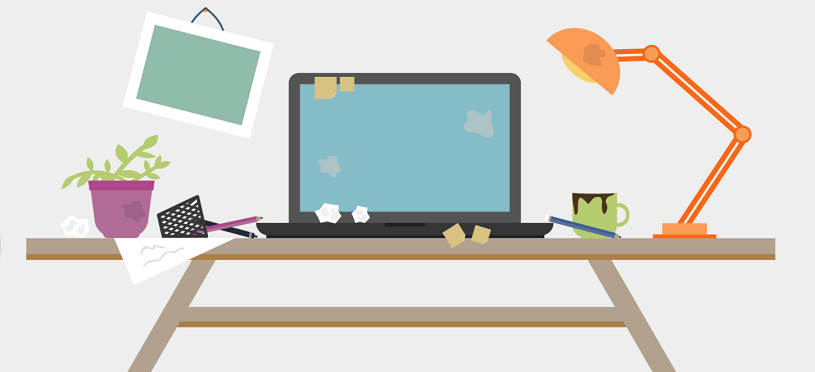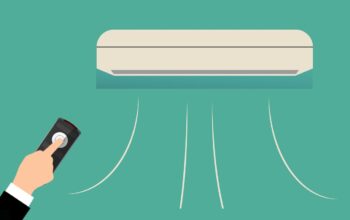How many people have more than one “junk” drawer in their homes? Far too many graduated from one catch-all drawer to multiples overflowing with bric-a-brac and designated full closets or garages to housing an ever-growing pile of possessions.
As comedian George Carlin once said, “A house is just a place to keep your stuff while you go out and get more stuff.” But does collecting tons of clutter add more joy to anyone’s life? Or does it merely result in more things to dust on cleaning day? Those who feel buried under years of assorted impulse purchases can benefit from taking a minimalist mindset to restore balance and harmony to their homes.
What Is Minimalism?
Minimalism refers to attracting only those things which bring meaning and joy to life. It also includes the purging of items that produce overwhelming or stressful feelings. At its core, minimalism rejects the notion that collecting more physical objects creates true happiness.
Minimalists embrace the idea sages have echoed across the ages — money cannot buy happiness. By practicing a lifestyle designed to promote inner calm and harmony, minimalists strive to act with purpose and deliberation in all they do. They understand the difference between temporary wants and genuine needs, and they honor those things that bring them true long-term happiness.
How to Get Started with Minimalism
Converting to a minimalist lifestyle requires a thorough session of unearthing internal motivations. Look around at any objects you bought on a whim — were they worth the money? Or, did you buy them to hold off negative feelings like frustrations and fatigue through retail therapy?
Next, decide which de-cluttering projects take priority. If finding clothing to wear to work in the morning has become difficult because of the sheer number of clothing items to choose from, the time has come to gather a donation to a local thrift shop or charity. Remove all clothes from the closet, and before placing them inside, ask yourself whether or not you wore the garment in the past year. If not, unless the clothing serves a sentimental purpose, such as a wedding gown handed down through generations, toss it in the charity box.
Next, tackle the junk drawer — or drawers. Usually, junk drawers make up approximately 67 percent of the top clutter areas in most homes. Keeping trash and recycling containers nearby, perform a similar procedure as with closets. Before tossing or recycling unwanted items, consider whether a friend or a family member could put them to good use.
Finally, repeat this procedure on a room-by-room basis. Make three piles in each room.
- Things you wish to keep: Minimalists can keep sentimental objects that bring a feeling of elation or pleasant nostalgia when gazing at them.
- Things to donate: Many items can go to good use. For example, donating old cell phones to a battered women’s shelter may save a life.
- Things to trash/recycle: To stay eco-friendly, recycle old items whenever possible. That may mean taking the extra step of washing out mostly empty shampoo bottles, etc., but it’s better than them ending up in landfills. Those unsure about whether anyone would want something like a used, but still functioning, TV can try putting out a curb alert on social media or call a local school to see if they could use the added item.
Living Like a Minimalist Going Forward
Once freed from excess clutter, take care not to invite it back in by going on a shopping spree or a flea-market jaunt. Practice the rule of one thing in, one thing out. That means tossing or donating an old shirt before going to the mall for a new one.
Minimalism sets people free, as they know everything is in its place. Those lacking adequate storage baskets and shelves can pick these items up relatively cheaply at mass home improvement stores, dollar stores and local yard sales.
Another habit to break? Instead of storing incoming paper mail in a bin to get to later, use a divided organizer to sort out the must-reads from the personal letters or offers. Clean this out at least once per week.
Procrastination leads to clutter, so clean up any small messes before going to bed at night. Yes, when one of the kiddos throws Cheerios around like New Year’s Eve glitter, it’s tempting to leave cleaning it for tomorrow. But that probably means starting the day in a bad mood, so do try to tidy up the night before.
How Living Minimalist Helps You Stay Organized
Minimalist living means knowing where the items you need are at all times. Additionally, many breathe easier when only the things they love surround them. Minimalists enjoy better organization, not to mention financial freedom, by curtailing impulse buying and continuing to value quality products that bring joy for years to come.
For more tips on transitioning to a minimalist lifestyle, check out this infographic created by PSECU, a Pennsylvania credit union.
Disclaimer: This post is sponsored by PSECU, a Pennsylvania-based credit union.
Related Posts

Loves home. I am here to provide how to make your home a much better place. 🙂 Blogging about HomeDecor, Home Improvements and more.











